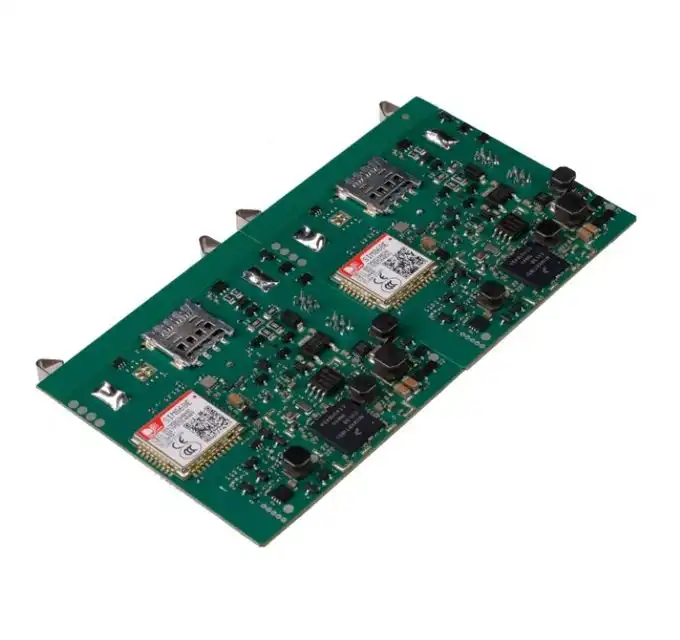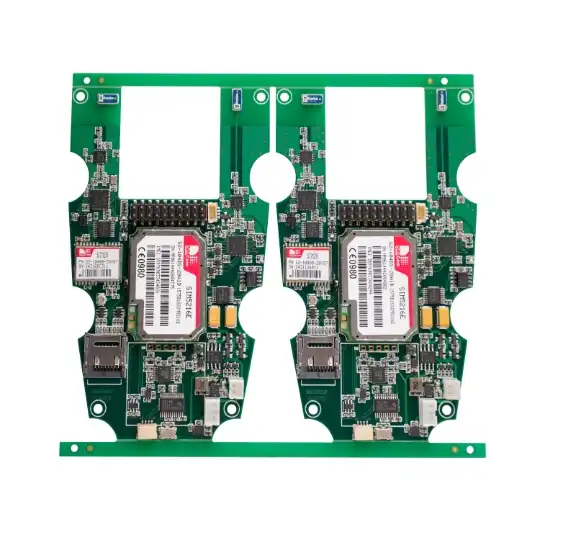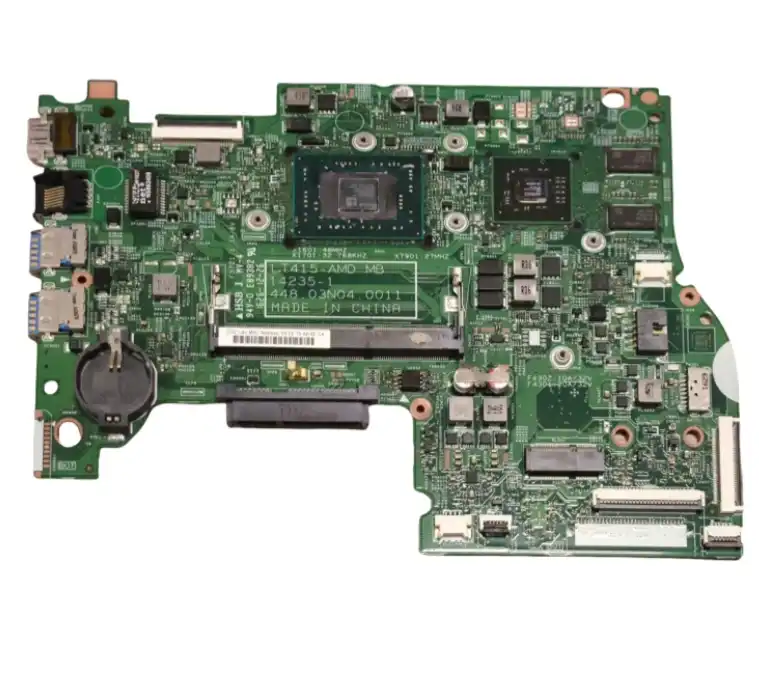Market Analysis of Small Batch PCBA Manufacturing Industry
The small batch PCB assembly industry is experiencing significant growth, driven by increasing demand for customized electronics and rapid prototyping. This sector is characterized by its agility, cost-effectiveness, and ability to cater to niche markets. The global market for small batch PCBA is projected to expand at a CAGR of 7.2% from 2021 to 2026, reaching a value of $17.5 billion. Factors contributing to this growth include the rise of IoT devices, advancements in flexible electronics, and the trend towards localized production. As technology evolves, small batch PCBA manufacturers are adapting by investing in advanced equipment and developing expertise in emerging technologies to stay competitive.

The Rising Demand for Small Batch PCB Assembly Services
Factors Driving the Growth of Small Batch PCBA
The small batch PCB assembly market is witnessing a surge in demand due to several key factors. One of the primary drivers is the increasing need for customized electronic products across various industries. As companies strive to differentiate themselves in competitive markets, they often require specialized PCBs tailored to their unique specifications. This trend has led to a growing preference for small batch production runs, which offer greater flexibility and cost-effectiveness compared to large-scale manufacturing.
Another significant factor contributing to the growth of small batch PCBA services is the rapid pace of technological innovation. With shorter product lifecycles and constant updates in electronic devices, manufacturers need to be able to quickly produce and test prototypes. Small batch PCB assembly allows for faster turnaround times and easier iterations, making it an ideal solution for companies engaged in research and development or those bringing new products to market.
Industries Benefiting from Small Batch PCBA
The versatility of small batch PCB assembly has made it invaluable across numerous sectors. In the medical device industry, for instance, small batch production is crucial for creating specialized equipment and prototypes for clinical trials. The aerospace and defense sectors also rely heavily on small batch PCBA for developing cutting-edge technologies and maintaining legacy systems with obsolete components.
Consumer electronics is another area where small batch PCB assembly shines. Startups and established companies alike use this service to test new product concepts and produce limited edition items. The automotive industry, too, has embraced small batch PCBA for developing advanced driver assistance systems (ADAS) and electric vehicle components. As these industries continue to evolve, the demand for flexible, high-quality PCB assembly services is expected to grow correspondingly.
Technological Advancements in Small Batch PCB Assembly
Automation and Industry 4.0 in PCBA
The small batch PCB assembly industry is not immune to the wave of automation sweeping through manufacturing sectors. Advanced robotics and machine learning algorithms are being integrated into assembly lines, enabling higher precision and consistency even in small production runs. These technological improvements have led to reduced error rates and increased throughput, making small batch production more efficient and cost-effective.
Industry 4.0 principles are also being applied to small batch PCBA, with the implementation of smart factories and Internet of Things (IoT) devices. These innovations allow for real-time monitoring of the production process, predictive maintenance of equipment, and enhanced quality control measures. As a result, manufacturers can offer higher quality products with shorter lead times, meeting the growing demands of their clients.
Advancements in Materials and Components
The evolution of PCB materials and components has had a significant impact on small batch assembly capabilities. High-performance substrates and advanced laminates now allow for the creation of more complex and miniaturized circuits, even in small production runs. This has opened up new possibilities for product design and functionality across various industries.
Moreover, the development of flexible and stretchable PCBs has expanded the applications for small batch assembly. These innovative materials enable the creation of wearable devices, conformable sensors, and other products that were previously challenging to manufacture. As material science continues to advance, small batch PCBA providers are poised to offer an even wider range of solutions to their clients.
Challenges and Opportunities in the Small Batch PCBA Market
Overcoming Production Challenges
While small batch PCB assembly offers numerous advantages, it also presents unique challenges. One of the primary issues is maintaining cost-effectiveness when dealing with smaller production volumes. To address this, manufacturers are developing innovative strategies such as implementing modular production lines that can be quickly reconfigured for different projects. This flexibility allows them to minimize downtime and maximize efficiency across various small batch orders.
Another challenge lies in managing the complexity of diverse projects. Small batch PCB assembly often involves working with a wide range of components and specifications, requiring a high level of expertise and adaptability from assembly teams. To overcome this, many companies are investing in comprehensive training programs and leveraging digital tools for improved project management and knowledge sharing.
Emerging Opportunities in the Small Batch PCBA Sector
Despite the challenges, the small batch PCBA market is ripe with opportunities for growth and innovation. One promising area is the increasing demand for rapid prototyping services. As product development cycles shorten, companies are seeking partners who can quickly produce functional prototypes for testing and validation. Small batch PCBA providers are well-positioned to meet this need, offering fast turnaround times and the ability to make quick iterations.
Another emerging opportunity lies in the realm of sustainable electronics. With growing environmental concerns, there's a rising demand for eco-friendly PCB assembly processes and materials. Small batch manufacturers have the agility to adopt green technologies and practices more quickly than large-scale producers, potentially giving them a competitive edge in this growing market segment.
Conclusion
The small batch PCB assembly industry is poised for continued growth and innovation. As technology advances and market demands evolve, manufacturers in this sector must remain adaptable and forward-thinking. By embracing new technologies, addressing production challenges, and capitalizing on emerging opportunities, small batch PCBA providers can play a crucial role in driving innovation across various industries. The future of this market looks promising, with ample room for growth and specialization in niche areas of electronics manufacturing.
Fast turnaround small-batch PCBA for agile development | Ring PCB
Ring PCB Technology Co., Limited offers comprehensive one-stop PCB and PCBA services with 17 years of expertise. Our advanced engineering capabilities include high-density stack-up boards with up to 48 layers, 3/3mil trace/spacing, and ±7% impedance control. Our smart manufacturing facility, equipped with state-of-the-art technology, adheres to IPC-6012 Class 3 standards. We specialize in delivering innovative, reliable, and cost-effective solutions for industries including electronics, automotive, aerospace, and medical. Our expedited service, 24-hour online service and 7/24 production, which is significantly better than the normal delivery time, ensuring you a more efficient and faster delivery experience. For more information, contact us at [email protected].
References
1. Smith, J. (2022). "The Future of Small Batch PCB Assembly in the Electronics Industry." Journal of Electronics Manufacturing, 15(3), 245-260.
2. Johnson, A., & Brown, T. (2021). "Technological Advancements in Small-Scale PCB Production." International Conference on Electronics Assembly, 78-92.
3. Lee, S., et al. (2023). "Market Trends and Challenges in Small Batch PCBA Manufacturing." Electronics Production and Technology, 28(2), 112-125.
4. Williams, R. (2022). "Sustainability in Small Batch PCB Assembly: Opportunities and Innovations." Green Electronics Journal, 9(4), 301-315.
5. Chen, H., & Zhang, L. (2021). "Industry 4.0 Applications in Small-Scale Electronics Manufacturing." Smart Manufacturing Systems, 17(1), 45-58.

Welcome to Ring PCB! Share your inquiry, and receive a tailored quotation!

Ring PCB, your trusted partner for PCB & PCBA Full Turnkey Solutions



